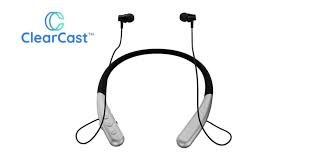What are these audits and why more and more companies trust them?

In the pharmaceutical industry, meeting quality standards isn’t optional. Nor is it enough to do it well: it must be demonstrated. Companies like ObelysQ help with precisely that, through GCP (Good Clinical Practice) and GVP (Good Pharmacovigilance Practice) audits that detect potential risks, validate processes, and ensure that everything is being done as it should.
These types of audits have become an essential tool for many companies looking to stay ahead of problems, comply with regulations, and, above all, ensure that patients are protected. It’s no longer just about passing an inspection; it’s about working with greater order, clarity, and confidence.
Table of Contents
Two audits, two complementary approaches
Although both are part of the sector’s best practices, each covers a different area. Knowing how to differentiate them is key to understanding what each contributes and why they are so necessary.
GCP Audit: Everything related to a clinical trial
When conducting a study with people, a rigorous protocol must be followed. The GCP audit verifies that this protocol is followed and that the data collected is reliable. It also ensures that the rights of participants are guaranteed at all times.Aspects such as:Well-documented informed consent .Fidelity to protocol , without unauthorized deviations.Correct management of clinical data.Training of the research team.Study drug control.
GVP Audit: Post-marketing surveillance
Once a medicine is on the market, its safety remains a requirement. This is where pharmacovigilance comes in. The GVP audit assesses whether the company has effective procedures to detect and manage any potential adverse reactions.Key points that are usually reviewed:Reception and evaluation of security cases.Correct use of databases and digital tools.Active risk management plans.Follow-up of previous corrective actions.Up-to-date staff training.
What advantages do these types of audits have?
Beyond regulatory compliance, these types of audits provide very practical benefits for the company’s daily operations. They not only help detect errors before they become a problem, but also improve the way we work.Clear benefits:Greater security against external inspections.Better organization and traceability of processes.Identification of areas with room for improvement.Reinforcement of the quality culture within the team.Confidence to launch new products or collaborate with other partners.
What does having specialized professionals contribute?
Auditing isn’t just about filling out a checklist. It’s about understanding how each company operates, knowing which points need to be reviewed in more detail, and proposing realistic solutions when a flaw is detected. Therefore, relying on an experienced team is essential.With consulting firms like ObelysQ, companies receive an audit tailored to their context, with clear recommendations, ongoing support, and a strategic vision. They don’t just review documents; they also support improvements.Among the most common services:Internal or third-party audits.Preparing for official inspections.Tailored training in GCP or GVP.Evaluation of computer systems and databases.GCP and GVP audits are an effective way to keep everything under control, detect errors before they escalate, and work with greater peace of mind. And with the right support, they go from being a formality to a real improvement tool.




